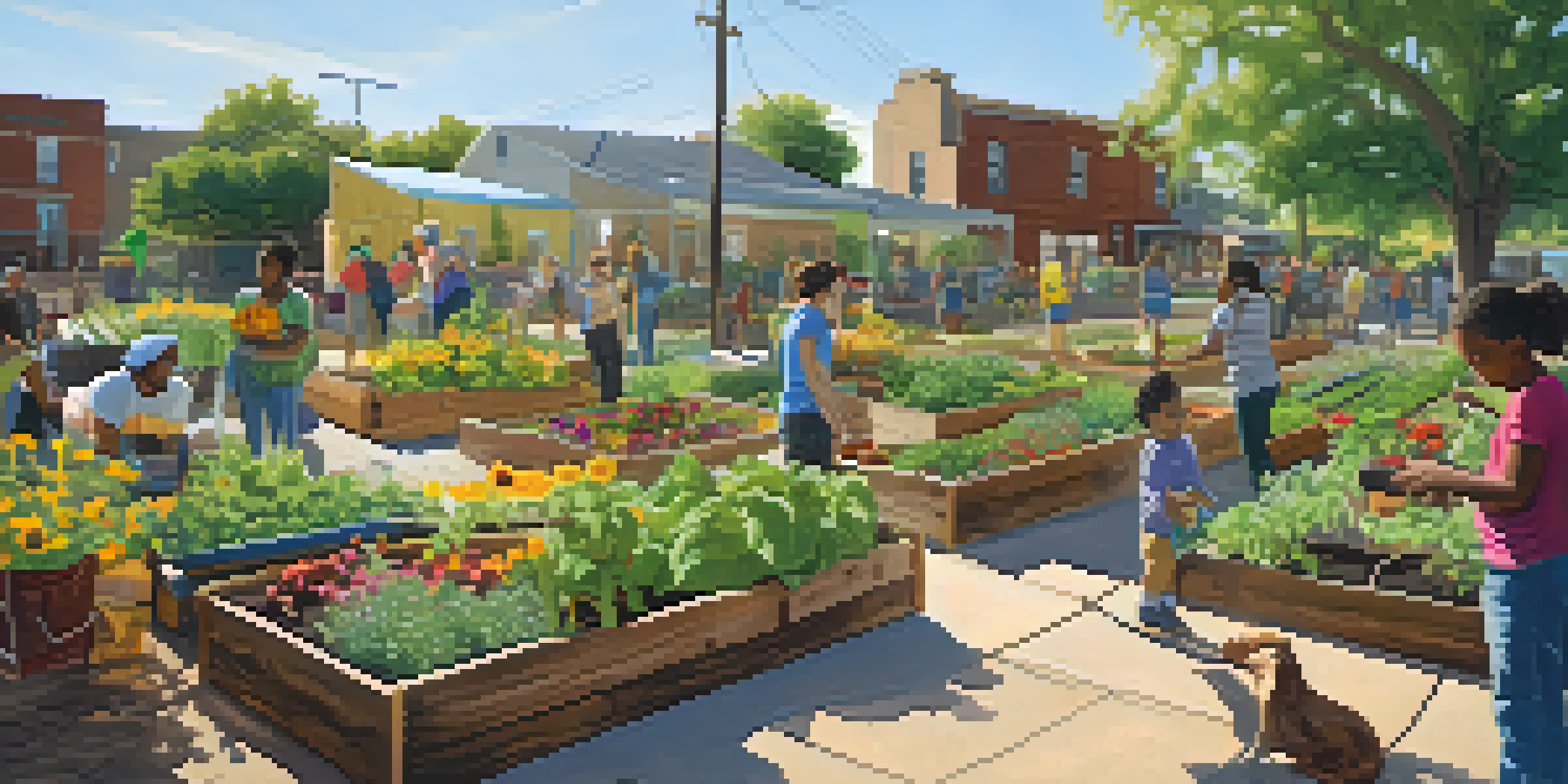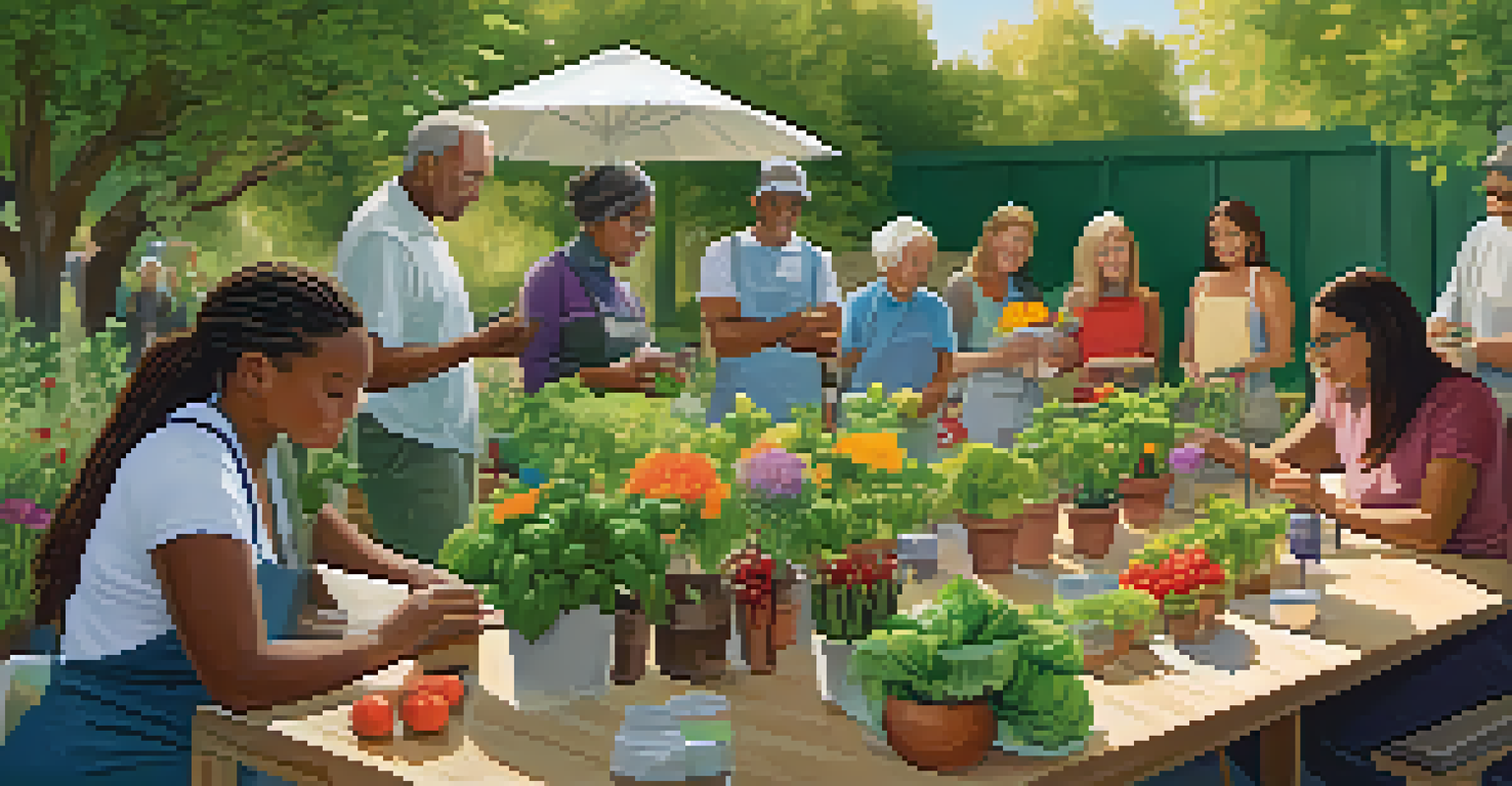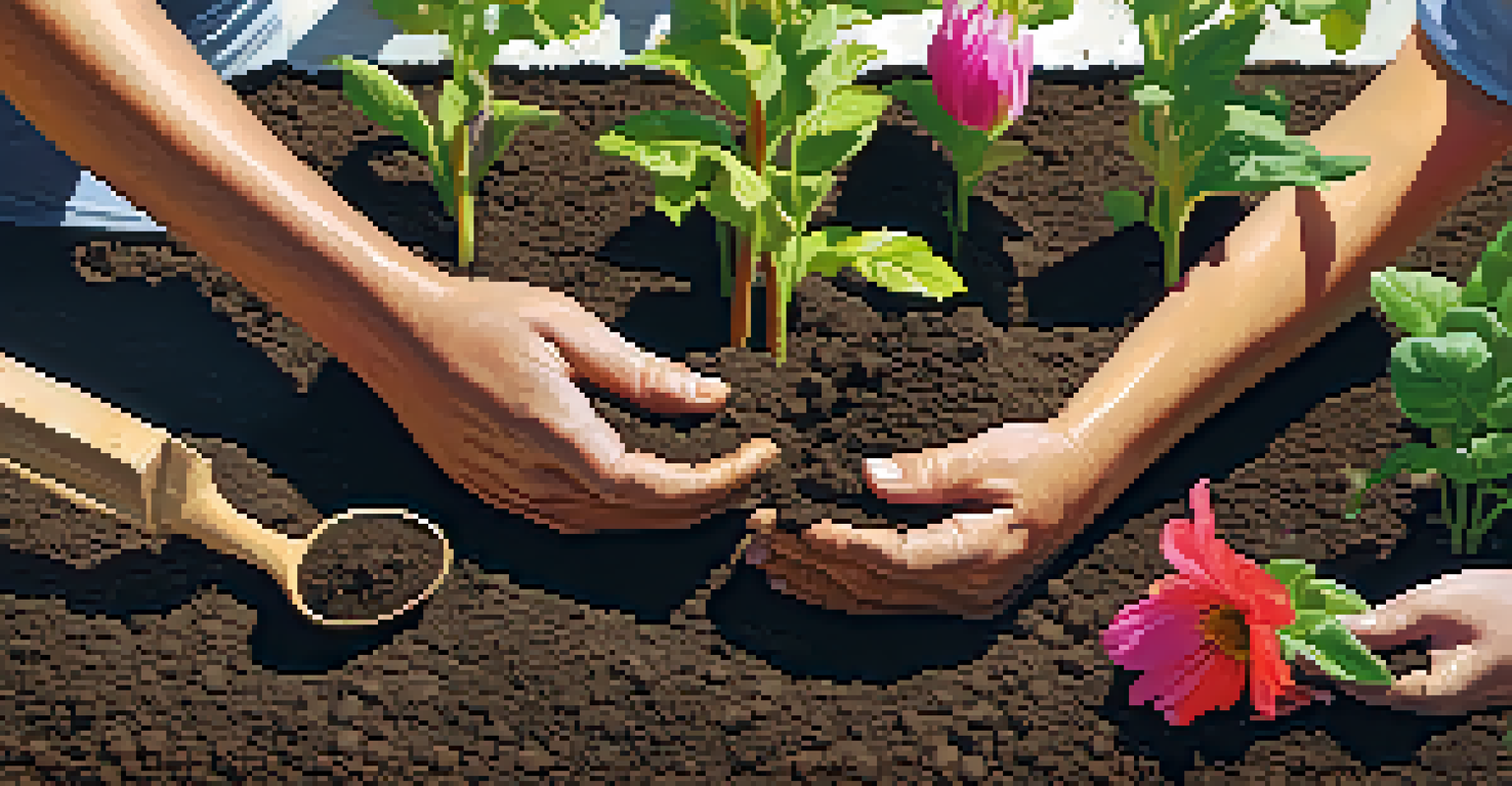Community Gardening Initiatives: Growing Health in Austin

What Are Community Gardening Initiatives?
Community gardening initiatives are collaborative projects where individuals come together to cultivate a shared plot of land. These gardens not only provide fresh produce but also promote social interaction and community bonding. In Austin, these gardens have become more than just a source of food; they are hubs of education, sustainability, and wellness.
Gardening adds years to your life and life to your years.
People of all ages and backgrounds participate in these initiatives, fostering a sense of belonging and shared purpose. It’s a chance for neighbors to connect, share gardening tips, and even exchange recipes for the bounty they grow together. As a result, community gardens often become vital parts of their neighborhoods, enriching lives in more ways than one.
Moreover, community gardening helps to address food insecurity by providing fresh fruits and vegetables to those who may not have easy access to them. In a city like Austin, where urban development often outpaces green space, these gardens serve as essential green lungs, improving both health and the environment.
Health Benefits of Community Gardening
Engaging in community gardening offers numerous health benefits, both physical and mental. For starters, gardening is a great form of exercise; digging, planting, and weeding can burn calories and improve strength. Additionally, the act of growing your own food encourages healthier eating habits, leading to better nutrition and lower rates of obesity.

Beyond the physical advantages, there’s a significant mental health component as well. Spending time in nature and nurturing plants can reduce stress and anxiety. Many participants report feeling a sense of achievement and pride in their gardens, which contributes positively to their overall mood and wellbeing.
Community Gardens Boost Health
Engaging in community gardening promotes physical exercise, mental well-being, and healthier eating habits.
Furthermore, community gardens provide an opportunity for education about health and nutrition. Workshops on cooking with fresh produce, safe food handling, and even organic gardening practices equip participants with valuable knowledge that can lead to lifelong healthy habits.
The Role of Education in Community Gardens
Education plays a crucial role in the success of community gardening initiatives. Many gardens host workshops that teach participants about sustainable gardening practices, plant care, and pest management. This not only enriches the gardening experience but also empowers individuals to make informed decisions about their own food sources.
To plant a garden is to believe in tomorrow.
Schools and local organizations often collaborate with community gardens to create programs for children and families. These programs help instill a sense of responsibility and connection to the food they eat, which can resonate through generations. When kids learn to grow their own food, they are more likely to develop a lifelong appreciation for healthy eating.
Moreover, these educational aspects foster community involvement, encouraging residents to share their knowledge and skills. By creating a space for dialogue and learning, community gardens become not just places to grow food, but also centers for growth in knowledge and community engagement.
How Community Gardens Foster Inclusivity
One of the most beautiful aspects of community gardening is its ability to bring diverse groups of people together. In Austin, these gardens are often open to anyone interested, regardless of age, background, or gardening experience. This inclusivity creates a welcoming environment where everyone can contribute and learn.
Community gardens often feature plots specifically designed for individuals with disabilities, ensuring that everyone can participate in gardening activities. This thoughtful approach fosters a sense of belonging and encourages social interaction among diverse groups, breaking down barriers and building friendships.
Education Enhances Gardening Skills
Workshops in community gardens empower individuals with knowledge about sustainable practices and healthy eating.
Additionally, many gardens celebrate cultural diversity through the planting of traditional crops and hosting multicultural events. These activities not only enrich the gardening experience but also promote understanding and appreciation for different cultures within the community.
Local Community Gardening Organizations in Austin
Austin is home to several organizations dedicated to promoting community gardening. Groups like the Austin Community Garden Coalition provide resources, support, and networking opportunities for garden leaders and participants. They work tirelessly to ensure that gardening is accessible to all residents, regardless of their circumstances.
Another notable organization, the Texas Organic Farmers and Gardeners Association, offers workshops and resources focused on sustainable practices. They emphasize the importance of organic gardening, which not only benefits individual health but also supports local ecosystems and wildlife.
These organizations play a pivotal role in the growth of community gardening in Austin, providing educational materials, funding opportunities, and a support network for those looking to start or maintain a community garden.
Challenges Faced by Community Gardens
While community gardens offer numerous benefits, they do face challenges that can hinder their success. One major hurdle is access to land; as urban areas expand, finding suitable plots can be difficult. Many gardens rely on partnerships with local governments or private landowners to secure space, which can be a complex and ongoing negotiation.
Funding is another significant challenge. Many community gardens operate on tight budgets and rely on donations, grants, or fundraising events to maintain their operations. Without consistent financial support, gardens may struggle to provide necessary resources such as tools, seeds, and educational programs.
Inclusivity Strengthens Communities
Community gardens foster a diverse environment where people from all backgrounds can connect, learn, and grow together.
Additionally, community gardens require ongoing maintenance and commitment from participants. This can sometimes lead to issues with plot abandonment or lack of participation, which can discourage new members. Effective communication and community involvement are essential to overcoming these challenges and ensuring the garden thrives.
The Future of Community Gardening in Austin
The future of community gardening in Austin looks promising, as more residents recognize the benefits of these initiatives. With a growing interest in sustainable living and local food production, community gardens are likely to gain even more traction. Many neighborhoods are actively seeking ways to incorporate green spaces into urban planning, paving the way for new gardening opportunities.
Moreover, technology is playing a role in the evolution of community gardening. Social media platforms and gardening apps help connect gardeners, share best practices, and foster a sense of community online. This digital engagement can lead to increased participation and collaboration, extending the reach of community gardens beyond physical boundaries.

As Austin continues to embrace its vibrant and diverse community, the impact of community gardening initiatives will only grow. Through collaboration, education, and a commitment to health and wellness, these gardens will remain essential to the city's landscape, nourishing both body and spirit.